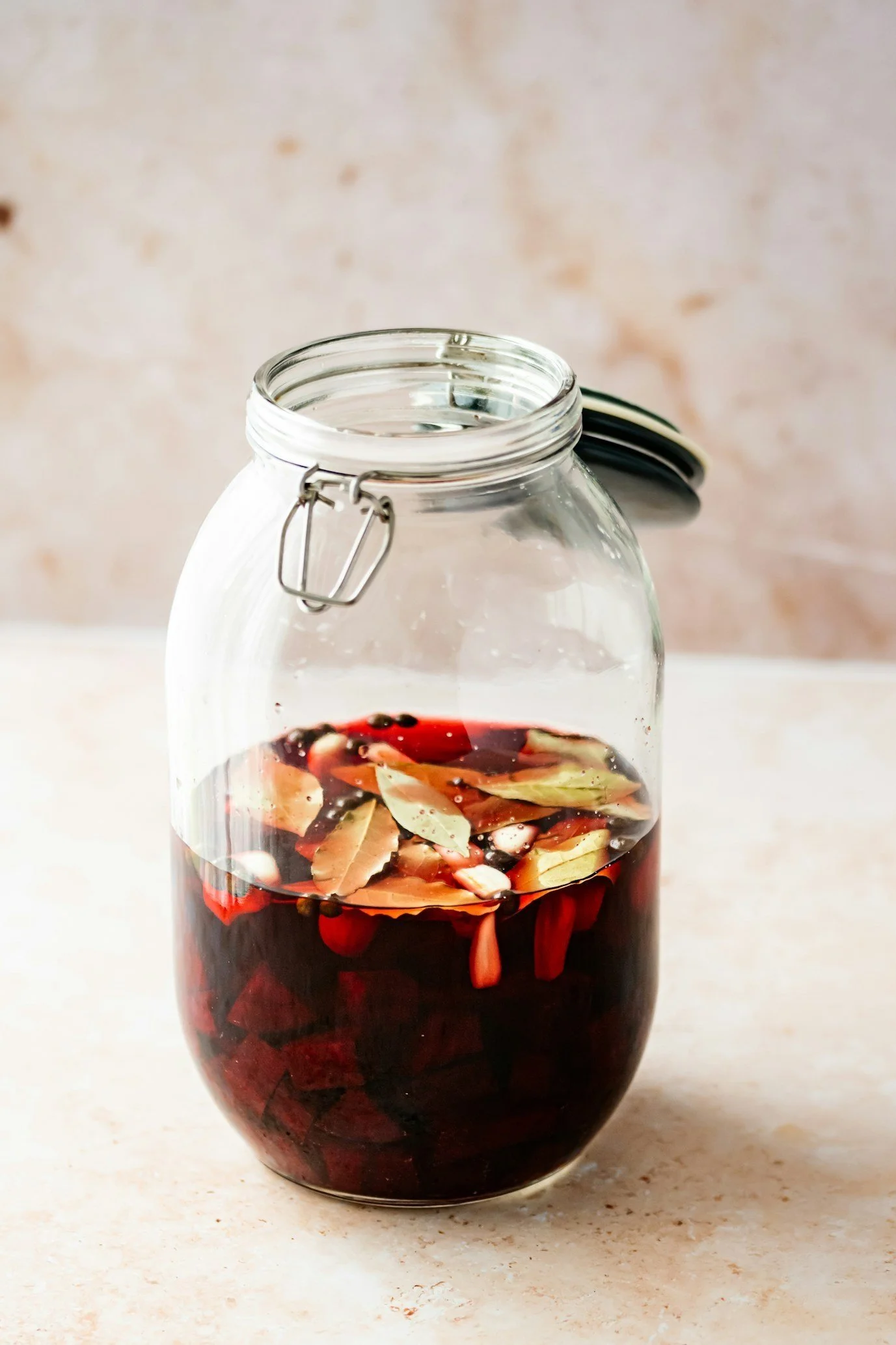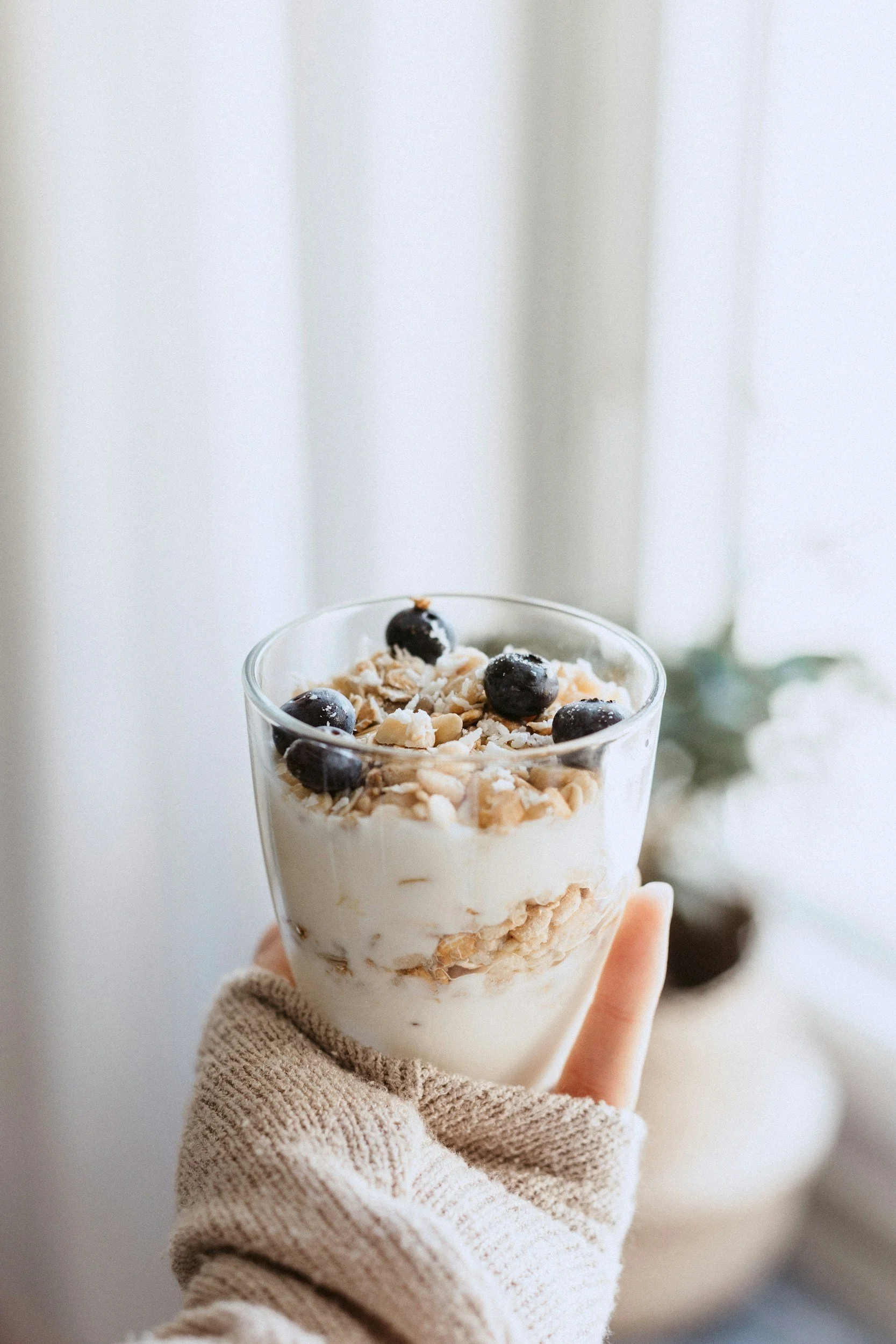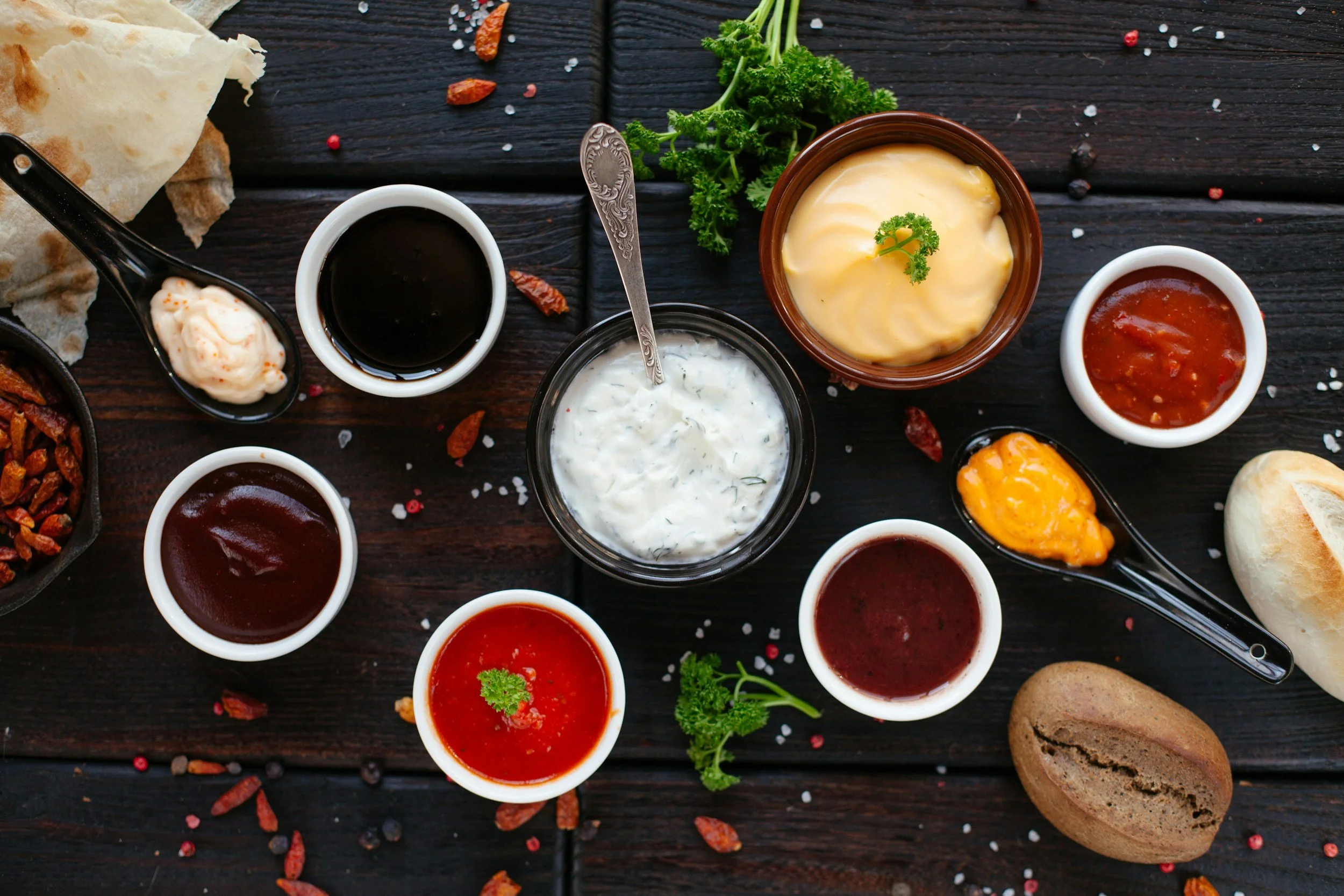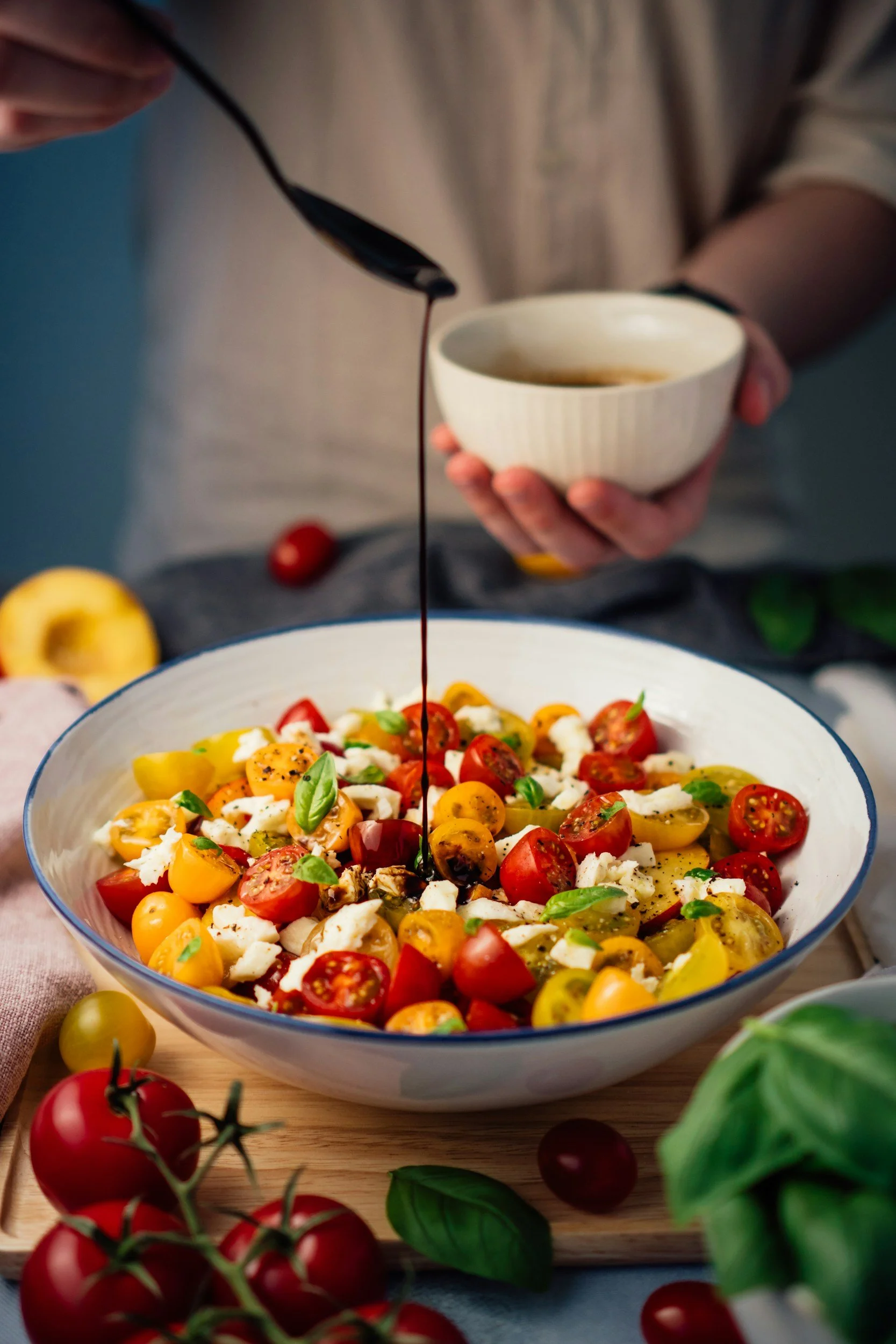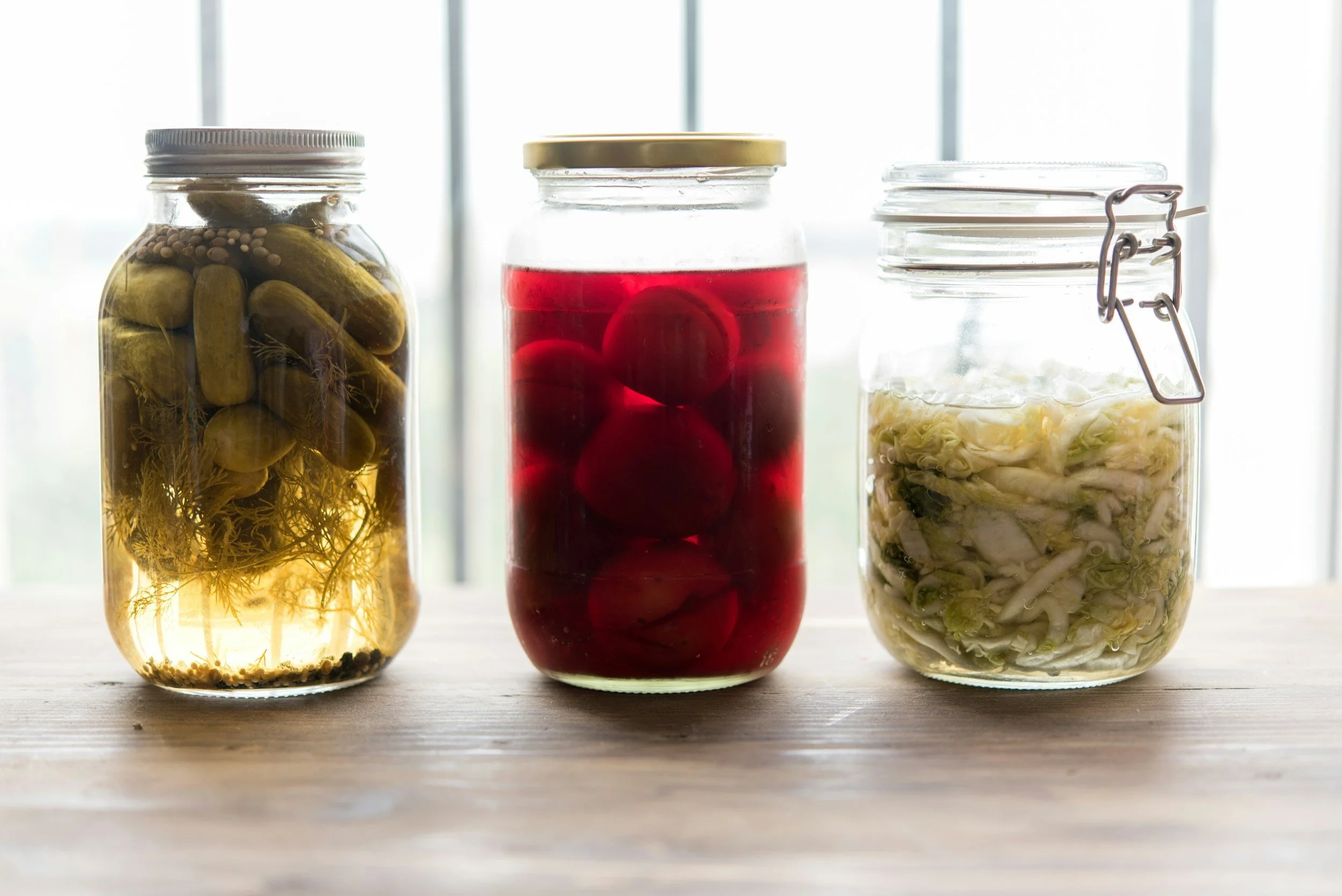Nourishing Your Mind Through the Gut–Brain Axis: The power of fermented foods
Part Two of the Nutritional Psychiatry and Brain Food Blog Series
Written by Tiernee Schatz, ATR-BC, LPC, NCC, CCTP
“To ferment something is to invest not only in a project, but in your own future.”
~David Zilber, director of the fermentation lab at NOMA
Recent research is just a small part of the mounting evidence connecting gut and brain health, specifically the role the gut microbiome plays in influencing both the immune response and nervous system. We began exploring Nutritional Psychiatry in this blog post and the role our gut plays in the production of serotonin, an important sleep and mood regulation neurotransmitter. For centuries, people have intuited the connection between digestion and emotion: ever felt butterflies before a big moment, or a knot in your gut during stress? Modern science is now tracing this connection through the gut–brain axis, a vast bi‑directional communication highway linking our gut microbiome, immune system, and brain.
The Gut–Brain Connection
Emeran Mayer, MD, author of The Mind–Gut Connection, describes the gut as hosting its own "second brain"—a sophisticated network called the enteric nervous system (ENS). This system contains over 100 million nerve cells and operates semi-independently from the central nervous system. It’s deeply interconnected with the brain through bidirectional communication pathways, the most prominent of which is the vagus nerve. This nerve acts like a superhighway, transmitting a constant stream of information between the gut and the brain.
But the vagus nerve is only part of the picture. The gut-brain dialogue also involves chemical messengers, including neurotransmitters and hormones, and immune system signals. These pathways allow the brain to monitor and respond to changes in the gut environment in real time whether this means responding to inflammation, infection, or even the presence of specific gut microbes.
A striking example of this connection is the role of serotonin, a key neurotransmitter that regulates mood, appetite, and sleep. While serotonin is often associated with the brain, about 90% of the body's serotonin receptors are actually found in the gut. Specialized cells in the gut lining, influenced by diet and microbial activity, help produce and release this molecule.
The gut’s microbiome, a complex ecosystem of trillions of bacteria, viruses, and fungi plays a surprisingly active role in this system. These microbes can produce neurotransmitter-like substances, affect the permeability of the gut barrier (impacting inflammation), and even influence the way we respond to stress. Research suggests that imbalances in the microbiome, or dysbiosis, may be linked to conditions like depression, anxiety, and cognitive decline.
In essence, your gut doesn't just digest food, it listens, speaks, and influences how you feel. Maintaining gut health through a balanced diet, stress management, and probiotic support may be just as important for mental well-being as it is for digestion.
Fermented Foods: Probiotic Powerhouses
Drew Ramsey, MD emphasizes in Eat Complete (and his follow‑up books) that fermented foods such as kefir, yogurt, kimchi, kombucha, and sauerkraut introduce live beneficial microbes (probiotics) into the gut.
A Stanford-led 17-week study found that increasing fermented food intake to 6 servings per day:
Increased microbiome diversity
Reduced inflammatory markers (CRP, IL‑6)
Improved immune profiles, changes not seen in a high‑fiber group alone
This suggests that probiotic intake directly helps calm systemic inflammation, a known trigger for anxiety and depression.
Mental Health on the Menu
Probiotic strains from kimchi and miso have been shown in mice to lower anxiety-like behavior and modulate GABA, reducing stress responses. Meanwhile, clinical meta-analyses indicate probiotic supplementation may help with depressive symptoms and mania. Daily servings of live-culture foods are suggested to maintain microbiome health and diversity. Don’t worry if you’re not on track with this. You don’t have to completely overhaul your fridge and can make mindful swaps or additions to the foods you already eat on a regular basis!
In Mary Karlin’s educational cookbook, Mastering Fermentaion: Recipes for Making and Cooking with Fermented Foods, there is a whole chapter dedicated to vinegars, juices, sauces, and condiments that can be easily incorporated into daily foods. There’s ketchup and mustard, mayonnaise, yogurt, vinegars for salad dressings, chutneys and fruit spreads that can be used at almost any meal as a yogurt, toast, salad, veggie, pasta, or meat topper! Doesn’t have to be sauerkraut, although there is a recipe for that too if you are fan.
Beyond Probiotics: Prebiotics Matter Too
A healthy microbial community needs both probiotics and prebiotic fibers. Leafy greens, rainbow vegetables, beans, nuts, seeds, and resistant starch are foundational prebiotic foods. These feed the beneficial microbes, fueling the microbiome’s positive impact on mental health.
Probiotics are the beneficial live microorganisms, mostly bacteria and some yeasts, that help populate your gut. You’ll find them in fermented foods like yogurt, kefir, sauerkraut, kimchi, miso, and kombucha. But while probiotics are important, they can’t do their job alone. Just like any living organism, these microbes need fuel. That’s where prebiotics come in.
Prebiotic fibers are non-digestible plant compounds that travel through the digestive tract to reach the colon, where they become food for your beneficial microbes. Think of prebiotics as the fertilizer that helps good bacteria grow and thrive. Without a steady supply, even the best probiotics may struggle to maintain their health-promoting functions.
What’s especially fascinating is how feeding your gut also feeds your mind. When beneficial microbes break down prebiotic fibers, they produce short-chain fatty acids (SCFAs) like butyrate, propionate, and acetate. These compounds help maintain the integrity of the gut lining, reduce systemic inflammation, and even influence neurotransmitter production, including serotonin and GABA, both essential for regulating mood and anxiety.
Cultivating a Mood-Friendly Diet
To design a mental-health-supporting diet:
Combine fermented foods with
Fiber-rich plant foods
Add omega‑3 rich foods (we’ll get into Omega-3 in Part Three of our Nutritional Psychiatry series)
From Mary Karlin: DIY Fermented Dijon Mustard
In Mastering Fermentation, Mary Karlin includes a simple yet transformative recipe for Dijon-style mustard that combines flavor, ferment, and wellness. Here's a version adapted for your kitchen:
Fermented Dijon-Style Mustard
Yield: ~1½ cups
Prep: 10 min + 3 days room-temp fermentation + 3 days refrigeration
Ingredients
¾ cup mustard powder (lighter Brassica powder)
1 tsp fine sea salt
⅛ tsp garlic powder
2 tsp raw, unfiltered honey
½ cup filtered water
1 Tbsp whey (from yogurt/sauerkraut brine)
2 Tbsp raw apple cider vinegar
Directions
Whisk mustard powder, salt & garlic powder in a bowl.
Stir in honey, then water & whey until combined.
Transfer to a jar; ferment at room temperature for 3 days. Stir and adjust consistency with more water/brine after day 1.
Refrigerate for 3 days to develop flavor before use. Keeps ~2 months
Why it matters:
Whey inoculates lactic acid bacteria.
Mustard engages pickling-style fermentation.
Apple cider vinegar adds acidity and probiotic support.
Serve this tangy mustard with sandwiches, roasted veggies, or even whisk it into salad dressings — each spoonful adds layers of gut-loving bacteria.
Your Next Steps for Gut–Brain Wellness
Emerging research continues to link a diverse, fiber-rich diet to lower rates of depression and anxiety, improving stress resilience. In other words, eating for your gut may be one of the most accessible and natural ways to support your mental health.
Incorporating more plant-based, prebiotic-rich foods into your diet isn’t about perfection, it’s about consistency. Small daily habits, like adding a handful of seeds to your breakfast or including a variety of vegetables in your meals, can gradually shift your microbiome toward a healthier, more balanced state and your brain will thank you for it.
Start small, build consistency: Begin with 2–4 T fermented foods daily incorporating kefir, yogurt, sauerkraut, or other fermented foods and sides, then build toward 1–2 cups/servings daily
Pair ferments with fiber: Eat leafy greens, beans, whole veggies and fruits. Feed those microbes well!
Include anti-inflammatory fats: Olive oil, fish, nuts, and seeds support brain and gut health (more on this to come).
Track changes: Over 4–8 weeks, monitor shifts in mood, energy, digestion, and stress. Consistency matters most.
Expand your ferment repertoire: Try the mustard recipe above or explore plum vinegar, apple butter, or pickled dried fruit on live-cultured yogurt! Your microbiome will thank you.
Tiernee Schatz, ATR-BC, LPC, NCC, CCTP is a counselor and art therapist at Blue Pines Counseling, Holistic Arts Studio in Cedarburg, Wisconsin. She is a board certified art therapist, nationally certified licensed professional counselor with advanced training in nutritional psychiatry, and is a certified clinical trauma professional.
References:
Karlin, M. (2013). Mastering Fermentation. Ten Speed Press.
Mayer, E. A. (2018). The mind-gut connection: how the hidden conversation within our bodies impacts our mood, our choices, and our overall health. New York Harper Wave.
Ramsey, D. (2016). Eat Complete. HarperCollins.
